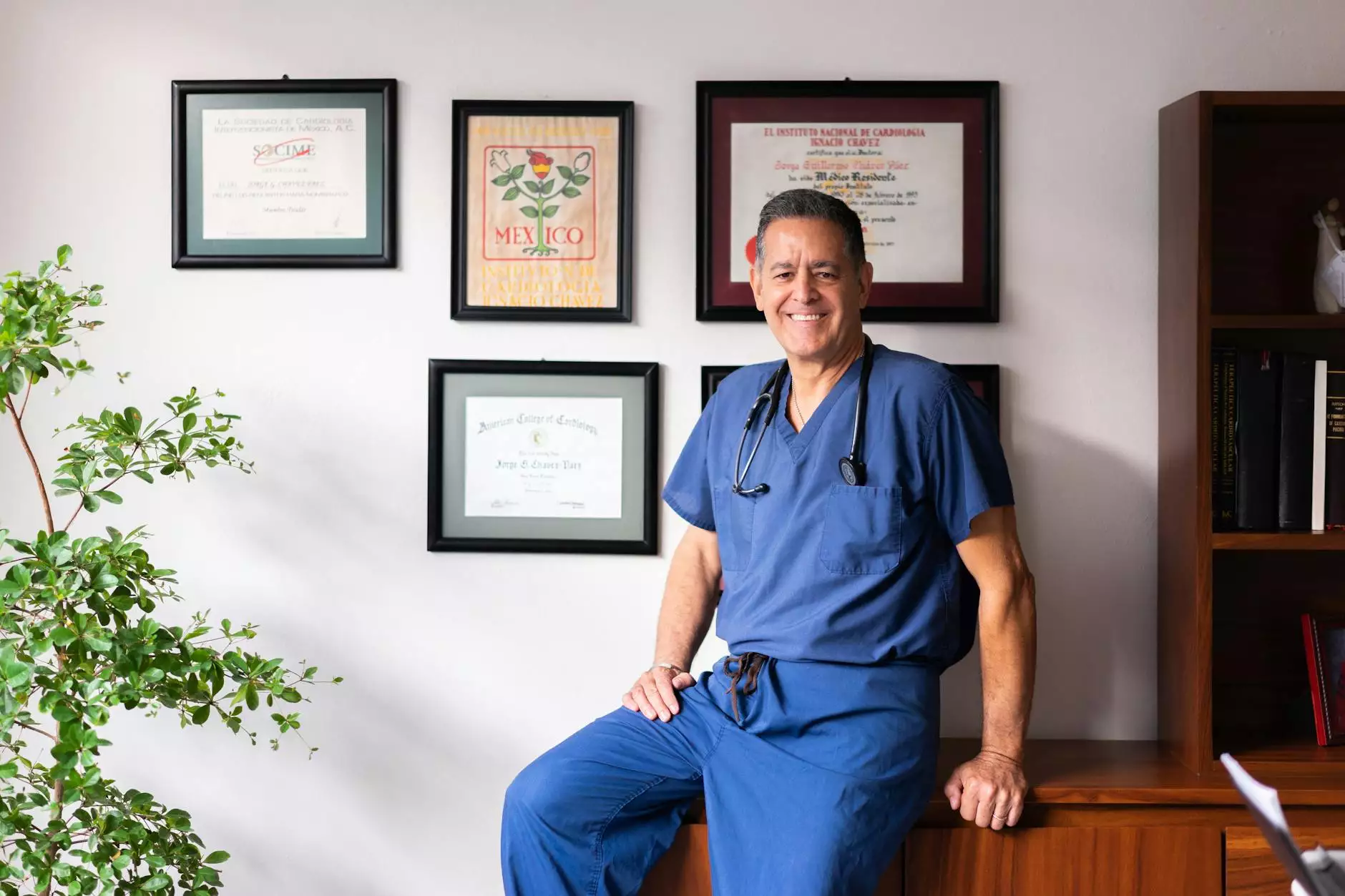The Role of a Thoracic Doctor in Modern Medicine

In the world of healthcare, thoracic doctors play a critical role in diagnosing, treating, and managing conditions related to the thoracic region, which includes the heart, lungs, and other essential structures within the chest. As specialists in their field, they are integral in ensuring optimal cardiopulmonary health and enhancing patient quality of life. This article delves deep into the nature of their work, the importance of their specialty, and how they positively impact the lives of countless patients.
Understanding the Specialty of Thoracic Medicine
Thoracic medicine encompasses a variety of disciplines focused on the diagnosis and management of thoracic diseases. These healthcare professionals are trained to handle the complexities of diseases that affect not just the lungs (pulmonology) but also the heart (cardiology) and other vital structures. Thoracic doctors can also be involved in surgical procedures, especially when conditions demand prompt intervention.
Key Responsibilities of a Thoracic Doctor
The responsibilities of a thoracic doctor can be diverse yet are primarily centered around ensuring comprehensive patient care. Here are some key responsibilities:
- Diagnosis: Utilizing advanced imaging techniques and tests to correctly diagnose conditions related to the thorax.
- Treatment Planning: Developing personalized treatment plans that may include medication, surgery, or other therapeutic interventions.
- Patient Management: Continuously monitoring patients’ progress and making necessary adjustments to treatment as needed.
- Collaboration: Working alongside other physicians and healthcare professionals to ensure a multidisciplinary approach to patient care.
The Importance of Early Intervention
Many thoracic conditions, such as lung cancer, emphysema, and pulmonary hypertension, can progressively worsen if not diagnosed and treated early. Early intervention by a thoracic doctor can significantly impact patient outcomes. By addressing issues before they escalate, potential complications can be minimized, and treatments can be more effective.
Common Conditions Treated by Thoracic Doctors
The scope of conditions addressed by thoracic doctors is broad. Some of the common diseases and disorders include:
- Lung Cancer: An emphasized focus area, thoracic doctors work on early detection methods and innovative treatment plans.
- Chronic Obstructive Pulmonary Disease (COPD): They provide management and treatment options to help patients maintain an optimum quality of life.
- Pneumonia and Other Infections: Prompt diagnosis and treatment can be life-saving, particularly in vulnerable populations.
- Interstitial Lung Disease: Thoracic doctors specialize in identifying and managing these often complex conditions.
- Cardiac Conditions: Many thoracic specialists also deal with heart diseases, including congenital heart defects and heart failure.
Innovative Treatments in Thoracic Medicine
The field of thoracic medicine is continually evolving, with groundbreaking treatments making once unmanageable conditions treatable. Some notable advancements include:
Minimally Invasive Surgery
Thoracic surgeons are now capable of performing complex procedures through small incisions, leading to faster recovery times and less postoperative pain. Techniques such as video-assisted thoracic surgery (VATS) have revolutionized how various lung diseases are treated, enhancing patient comfort while achieving excellent surgical outcomes.
Interventional Pulmonology
This sub-specialty combines pulmonology and minimally invasive procedures, enabling thoracic doctors to perform bronchoscopic interventions for both diagnostic and therapeutic purposes. Such techniques allow for the treatment of conditions without the need for traditional surgical methods.
Targeted Therapies and Oncology
In managing thoracic cancers, there has been a significant shift toward targeted therapies and personalized medicine. By understanding the unique genetic makeup of each tumor, thoracic oncologists can tailor treatments to each patient, increasing the likelihood of successful outcomes.
Patient Education and Empowerment
A critical aspect of a thoracic doctor's role is educating patients about their conditions and treatment options. Empowering patients with knowledge allows them to take an active role in their healthcare journey. This includes guidance on lifestyle modifications, such as smoking cessation, which can drastically improve lung health.
Supporting Mental Well-Being
Thoracic conditions can significantly impact a patient’s mental health. Thoracic doctors recognize the interconnectedness of physical and mental well-being. By providing resources for mental health support and encouraging open communication about psychological challenges, they can enhance the overall treatment experience.
Choosing the Right Thoracic Doctor
When seeking treatment for thoracic issues, choosing the right thoracic doctor is crucial. Here are some tips to help in this selection process:
- Research Credentials: Look for board-certified specialists with extensive experience in thoracic medicine.
- Seek Recommendations: Consult with primary care providers or ask for referrals from trusted sources.
- Review Patient Testimonials: Gain insight into other patients' experiences with the doctor.
- Evaluate Communication Style: Ensure that the doctor is approachable and willing to address any questions or concerns.
The Future of Thoracic Medicine
The future holds exciting prospects for thoracic medicine. With advancements in technology, including AI and personalized medicine, thoracic doctors are at the forefront of transforming patient care. As research continues to unveil new treatment paradigms, the focus will increasingly shift toward early detection and comprehensive patient management.
The Role of Telemedicine
The emergence of telemedicine has been a game-changer, especially in reaching patients in remote areas. Virtual consultations allow thoracic doctors to extend their expertise beyond traditional settings, ensuring that vital healthcare access is available to all patients, especially those with limited mobility or transportation issues.
Conclusion
Thoracic doctors are indispensable in the modern healthcare landscape. Their expertise not only saves lives but also enhances the quality of life for patients with various thoracic conditions. By focusing on early diagnosis, innovative treatment options, and patient education, they pave the way for better health outcomes. As we progress into the future, the significance of thoracic medicine will only continue to grow, underscoring the need for specialized care in preserving and improving respiratory and cardiac health.
Contact a Thoracic Doctor Today!
If you or a loved one are experiencing symptoms related to thoracic conditions, don’t hesitate to contact a qualified thoracic doctor at neuMarkSurgery.com for a thorough evaluation and personalized care plan.









